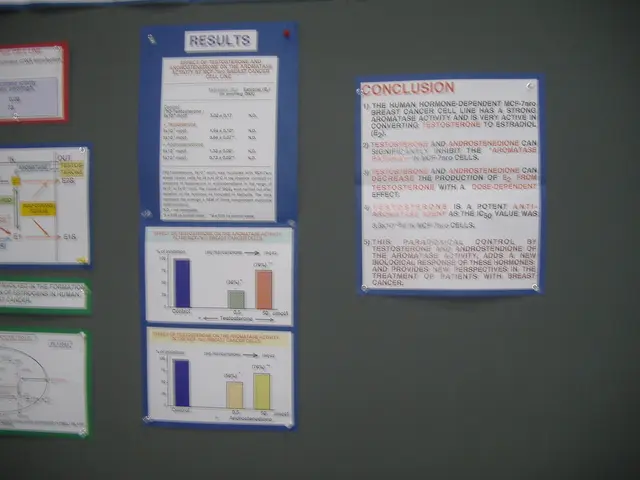Four remedies for avoiding or slowing the onset of hearing impairment
In the journey of aging, hearing loss can be a significant challenge that not only makes individuals feel older but also poses risks to their safety and independence. However, there's hope in the form of certain supplements that can help preserve and protect hearing for a lifetime.
The inner ear, home to tiny hair cells, plays a crucial role in hearing. These cells convert sound waves into nerve signals that travel to the brain. As we age, these hair cells can become damaged or die, leading to permanent hearing loss. But fear not, for a strategic combination of supplements can help safeguard these delicate structures.
Research and expert opinions support the use of antioxidants, omega-3 fatty acids, magnesium, certain B vitamins, and adaptogenic herbs with neuroprotective effects. Antioxidants like Vitamins C and E, beta-carotene, and omega-3s found in oily fish like salmon and sardines, support inner ear function and circulation, lowering the risk of age-related hearing decline.
Magnesium, a mineral essential for blood flow, protects against noise-induced free radical damage, aiding hearing preservation. B vitamins, particularly folic acid and B12, have shown promise in slowing age-related hearing loss and improving tinnitus symptoms. Adaptogenic herbs like Ashwagandha, Dong Quai, and Mucuna Pruriens, featured in supplements like Quietum Plus, help restore balance and reduce oxidative stress in the inner ear.
One such antioxidant, Fisetin, is currently under clinical research for its potential role in supporting cellular health relevant to age-related sensory decline, including hearing.
It's important to note that a supplement strategy should ideally be combined with lifestyle measures such as protecting ears from loud noise and maintaining overall health. For instance, a daily dose of 15 mg of zinc is recommended, along with 100 - 400 mg of magnesium to support hearing.
Folic acid supplementation, in particular, has shown promising results. In studies, older men and women given 800 mcg folic acid per day showed less decline in hearing of the speech frequencies compared to a placebo group. This underscores the importance of folic acid in preserving hearing health.
Moreover, vitamin A has been shown to improve hearing in patients with age-related hearing loss, with some studies reporting a 5-15 decibel improvement. Zinc supplementation can also improve tinnitus and sensorineural hearing loss in about one-third of elderly adults who are marginally zinc deficient.
However, it's crucial to remember that excessive noise exposure and aging are the most common causes of hearing loss in adults. Those with a family history of age-related hearing loss, repeated exposure to loud noises, certain medical conditions like diabetes, or taking certain medicines like chemotherapy drugs for cancer, are at greater risk.
In conclusion, a proactive approach towards hearing health, incorporating a balanced supplement regimen and lifestyle modifications, can help slow or even reduce age-related hearing loss. If you find yourself saying "What?" more often due to diminished hearing, it's not too late to address the issue. After all, preserving our hearing is key to maintaining our independence and quality of life as we age.
Read also:
- Trump's SNAP reductions and New York City Council's grocery delivery legislation: Problems for city residents highlighted
- Reducing dental expenses for elderlies in Sweden: Over 50% cut in charges for pensioners by the government
- Forty-year-old diet: A list of meal choices to savor
- Exiled Life's Conundrum: A Blend of Liberation, Disillusionment, and Distress







